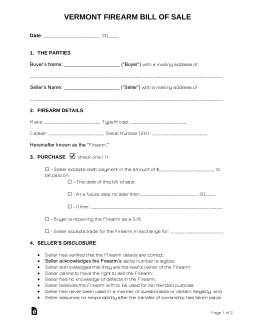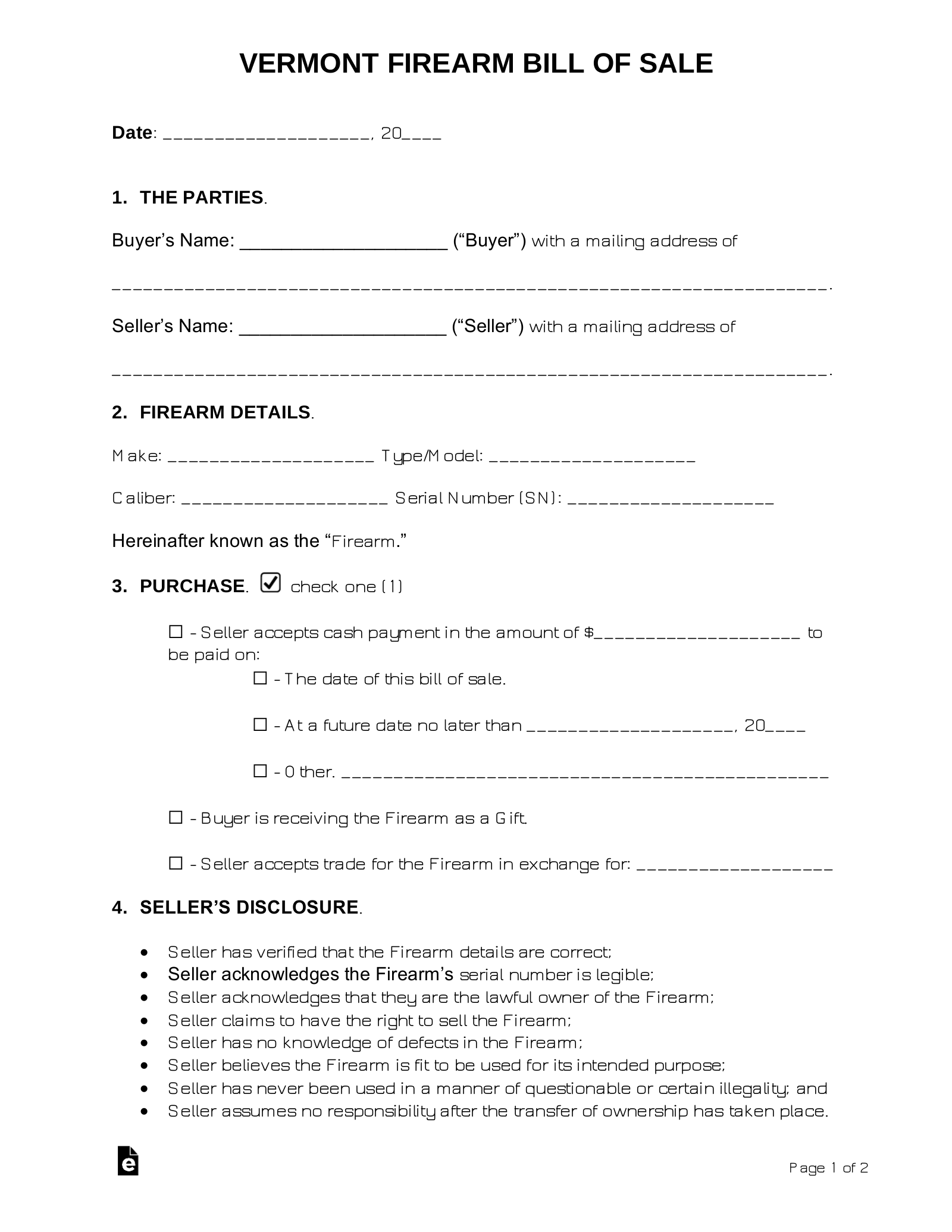Updated September 14, 2023
A Vermont gun bill of sale is a legal document designed to provide information pertaining to the sale and purchase of firearms in the State of Vermont. The document provides information regarding the change of ownership of a firearm, the buyer, seller, and identifiable information with regard to the firearm itself. This document does not require notarization.
Table of Contents |
Privately Selling a Firearm
In order for two parties to complete the private sale of a firearm, they must engage the services of a licensed dealer to perform the transaction.[1]
Prohibited from Buying
A person is prohibited from owning or purchasing a firearm in Vermont if they are convicted of one of the following violent crimes:[2]
- A listed crime, as defined by state law,[3] or a comparable offense and sentence in another jurisdiction if the offense prohibits the person from possessing a firearm under federal law. For the purposes of this restriction, listed crimes do not include the following:
- Lewd or lascivious conduct
- Recklessly endangering another person
- Operating a vehicle under the influence of alcohol or another substance, resulting in either death or serious bodily injury
- Careless or negligent operation resulting in serious bodily injury or death
- Leaving the scene of an accident resulting in serious bodily injury or death
- A misdemeanor violation relating to abuse, neglect, and exploitation of vulnerable adults
- Lewd or lascivious conduct
- An offense involving the sexual exploitation of children, or a comparable offense and sentence in another jurisdiction if the offense prohibits the person from possessing a firearm under federal law.
- An offense involving the selling, dispensing, or trafficking of regulated drugs, including cocaine, heroin, depressants, stimulants, narcotics, methamphetamine, hallucinogenic drugs, and Ecstasy, or a comparable offense and sentence in another jurisdiction if the offense prohibits the person from possessing a firearm under federal law.
- An offense relating to the possession with intent to distribute of a controlled substance other than marijuana in another jurisdiction if the offense prohibits the person from possessing a firearm under federal law.
Registering a Firearm
Government agencies in the state of Vermont are prohibited from requiring the registration of privately owned firearms.[4] However, all licensed pawnbrokers and retail merchants must maintain a detailed record of every firearm sold by their establishment.[5]
Concealed Carry
Vermont does not have any laws that require residents to possess a special license to carry a concealed weapon in the state.
Reciprocity
Vermont does not have any laws regarding reciprocity because it allows permitless concealed carry.


